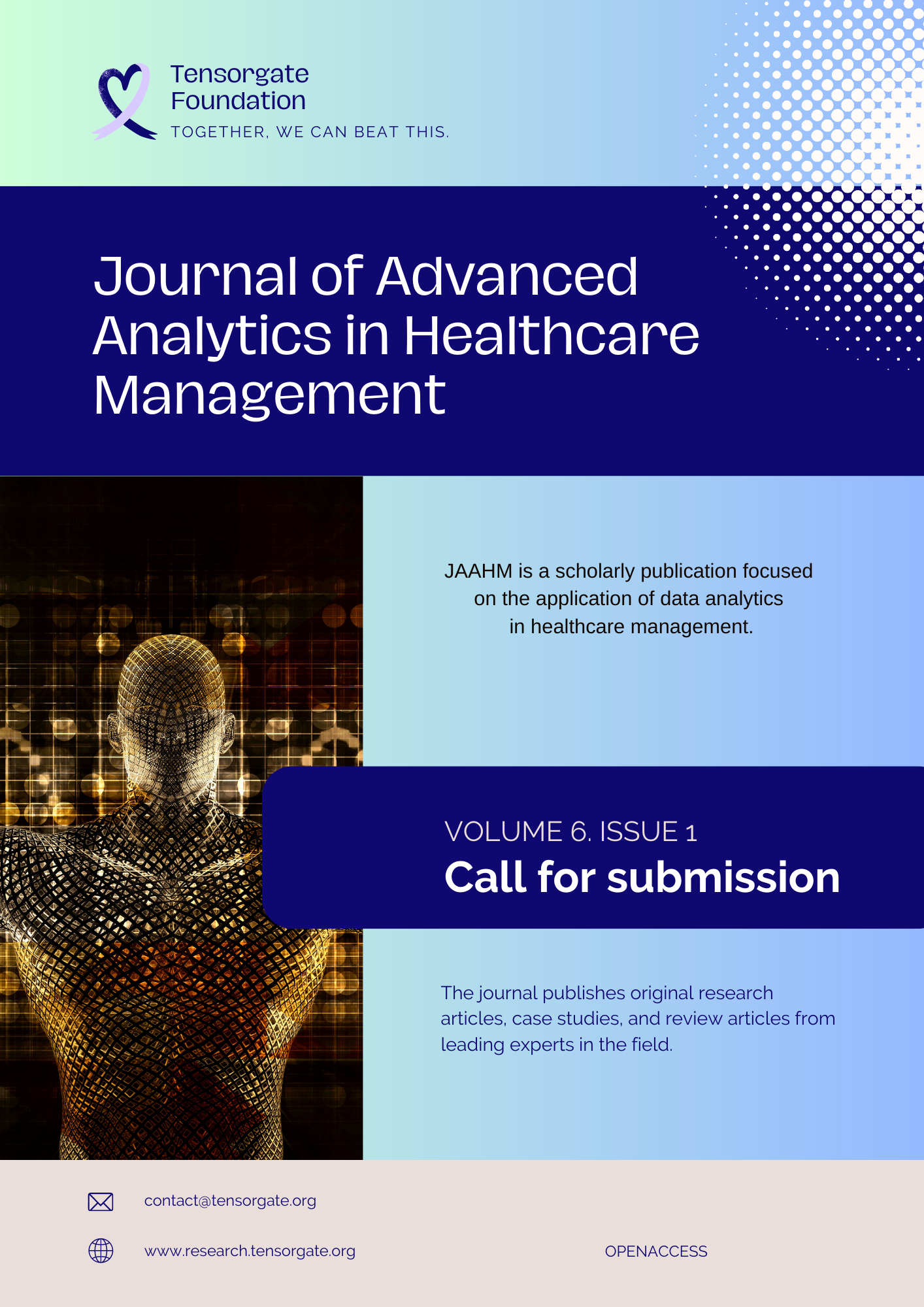Healthcare Analytics in Resource-Constrained Settings: Opportunities and Challenges
Keywords:
Analytics, Developing countries, Healthcare, Resource-constrained settings, TechnologyAbstract
Healthcare analytics has been transforming healthcare delivery and management worldwide, providing valuable insights to healthcare providers to allocate resources efficiently, reduce waste, and improve patient outcomes. However, the implementation of healthcare analytics in resource-constrained settings such as developing countries poses unique opportunities and challenges. This study aims to explore the opportunities and challenges of implementing healthcare analytics in resource-constrained settings, particularly in developing countries. The importance of healthcare analytics in developing countries cannot be overstated. These countries often face limited resources, resulting in a shortage of healthcare providers and inadequate access to care for patients. Healthcare analytics can help bridge this gap by identifying patterns and trends that can inform clinical decision-making, optimize resource allocation, and improve patient outcomes. The findings of this study revealed several opportunities of healthcare analytics in resource-constrained settings, including improving resource allocation, enhancing patient outcomes, streamlining workflow, facilitating remote care, and identifying cost-effective solutions. However, the study also identified several challenges, including limited data availability, lack of expertise, limited technology infrastructure, privacy and security concerns, limited access to advanced analytics tools, and cultural and language barriers. To overcome these challenges, this study recommends a multi-disciplinary approach that involves healthcare providers, policymakers, data scientists, and other stakeholders. Strategies that leverage existing resources and build capacity in healthcare analytics, such as training healthcare workers in data management and analysis, investing in technology infrastructure, and collaborating with external partners to build networks of expertise, are also recommended. This study emphasizes the importance of healthcare analytics in resource-constrained settings, particularly in developing countries, and the need to address the unique opportunities and challenges that come with it. By addressing these challenges and leveraging the opportunities, we can harness the power of healthcare analytics to improve healthcare delivery and outcomes in resource-constrained settings.

